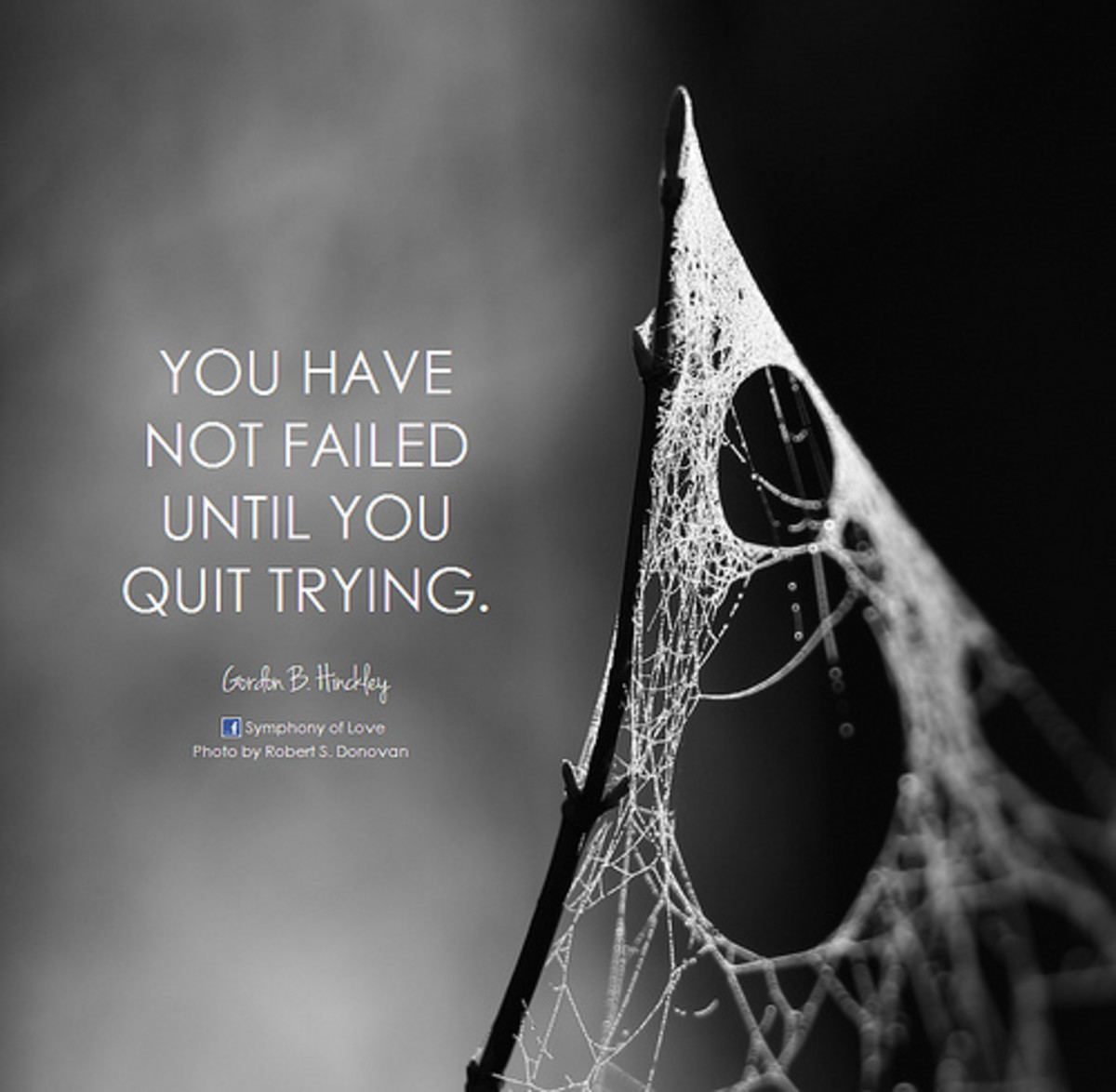Bad Internet Advice For Employment

Top 4 Bad Tips For Work
I have seen some very bad advice for advancing your career in recent days, posted on various Internet sites as if by experts in the field of careers and employment. Don't be fooled by these postings.
Some of these websites are even heretofore well known career boards and job search engines, which is disheartening. It is hard to believe that the advice they are currently given is authentic and not meant as a joke.
The poor advice I am seeing is much like that I suspected to occur, as I wrote in in the last section of this page: Tips for Women On the Job
This BAD JOB ADVICE takes the undesired qualities of
- An undeserved sense of entitlement and
- An unproductive and ungracious attitude
to the highest levels. If you follow this kind of advice, you are more likely to be fired than promoted. Such advice can lead to increasing violence in the workplace as well.


Bad Advice and Backward March
Here is a variety of what I have found:
Firstly, let us recall that in Soviet Russia under the Communist Regime, the People worked 7 days a week, 365 days a year, with no time off whatsoever. Yes, 24/7/365 in many places until the 1980s.
Industrial accidents increased to the point that factories built well-appointed relaxation rooms in their facilities and required all workers to use them 15 minutes before their shifts, at lunch, and after their shifts. It was mandatory. The relaxation program was so successful that it had the effect in the 1970s and 1980s of reducing industrial injuries and also traffic accidents by significant percentages.
Previously, people had been so tired that they were walking out in front of cars and buses, or falling asleep at the wheel and crashing, although few owned cars). In the 1980s - 1990s, the Russian republics began to institute at least 1 day off of work per week. In France, people receive 6 weeks vacation yearly. In Germany, my friends receive 4 weeks yearly vacation their first year on the job. In America, we may not receive any at all - when we can find work. This is dangerous.
In America, more and more of us are independent contractors and have to work 14 hours a day in order to pay the rent, so we are almost where the Soviet Union was in the 1960s. Since the advent of temporary employment services, which have been life-saving to those of us that have used them successfully, to the rise of the IC, across the board reductions of entry level salaries and benefits, in the late 1990s, and other events, the American workforce has been forced to march backwards. In fact, productivity in the country as a whole was severely reduced from previous figures in 2011.

Bad Tip Number One
-
Call in for work on Saturday and Sunday or whichever are your days off. Work 7 days a week.
It is well known and accepted as medical and psychological fact that human beings must have complete breaks for work or study in order to be productive AT work or study.
Even the Japanese that work 14 - 16 hours per day take 4 hours off for dinner and are refreshed. They do not work both weekend days. Asia has always worked 5½ - 6 days a week, even in the school system - including students, who often also do the janitorial work in the schools.
Online advice tells us that Generation Y and beyond, having grown up with technology, can't tell the difference between work and non-work, because of Blackberry, iPhone, iPad, SKYPE, and others. We are to believe than GEN Y and younger individuals feel life is all work-play combined, so we should take advantage of that and get all the work we can from these employees.
These workers burn out more quickly for the lack of breaks and rejuvenation time. Sleep is not enough. The human body and mind needs awake time that is relaxing in order to process thoughts and events and to be productive. The human Central Nervous System will become overloaded otherwise. We knew this more strongly in America when we did the initial research and experiments to prepare for entering the Space Race in the 1950s - too much isolation, too much work, too much lack of stimulation and the brain goes mad. Continue the scenario and the brain dies.
By the 2012s, we found that multitasking performed long-term for many hours per day becomes bad for health and bad for productivity.
The bed advice is that people will just work "only" 5-6 hours, 7 days a week, and have a healthy life, but they will not. They will end up working 12 hours a day, 7 days a week. I have witnessed three17-year-olds already spending time in a psych ward to recuperate from this regimen.
Remember Logan's Run?
That's the futuristic story in which everyone is required to die at age 21.
If we work younger people 7 days a week via technology, they will burn out almost as quickly with the physical side effects of constantly being plugged in. 14-year-olds are responsible for a lot of gaming and web page graphics and receive good pay for it, so 7 years will be about right.
What can too much plug-in time cause?
We have not seen all the effects yet and much additional technology hits the market every month, but some problems take shape as neurological problems:
- hand tremors,
- hand and facial tics,
- vocal tics,
- seizures,
- inability to control anger,
- inability to control laughter,
- deteriorating eyesight,
- headaches,
- burnout.
These are all possible side effects to look out for. With the trend toward hiring increasing numbers of independent contractors, these folks might not have health insurance either, compounding their problems.
My professional opinion from a counseling, medical, and workforce development stance, is that one whole 24-hour period without work and without technology every week is mandatory. The Japanese police force is required to take one workday weekly for flower arranging classes in order to build mental resilience and to feed the soul. Are we any different?
See this BURNOUT link: What Causes Burnout
Bad Tip Number Two
-
Work any hours you want and don't tell anybody.
When you need to leave, don't ask; just go - for however many days you need. Maybe organize your work and send a couple of emails to coworkers about it. This is the ultimate flex time that you set up for yourself without notifying notifying anyone.
Some forms do use flex time, but it requires communication and notifications. If you follow the bad advice, company officials may feel fine about asking you to work 7 days a week from there on out, to make up for your absences. At the same time, most employers are strict about accountability and working your own hours without permission will often lead to unemployment.
Bad Tip Number Three
-
Invite your boss to join your MySpace or Facebook network.
Try LinkedIn instead!
Sites like MySpace and Facebook, are not yet known for promoting professional links as as well as they could achieve, but they may do so in the future. Too much spam and non-professional non-business material is posted everywhere on these sites and could become a work-related situation. In the 2010s, potential bosses are asking for Facebook passwords for background checks and this is not a good trend
LinkedIn is the better network to use for employment related interaction at this time.
Bad Tip Number Four
-
Wear headphones ALL the time at work.
If you work in an IT or call center atmosphere that uses telecommunications as a mainstay and social media technology and the like, this is fine.
Otherwise, headphones provide a mechanism used to avoid interaction with coworkers and bosses. You may need to do this at times, but your boss probably watches your computer screen from his own desktop and knows what you do all day, anyway. American companies are permitted by law to look at any employee's computer material at any time.
Note: One person I observed for a time wore headphones constantly on the job and was stealing laptops, newly created software, and private information about company employees, government programs, private businesses, etc. He got away with a substantial amount of identity theft and fraud before he suddenly disappeared and the problem was revealed.
♣
Overall, I think that these are four bad tips that you can live without.










